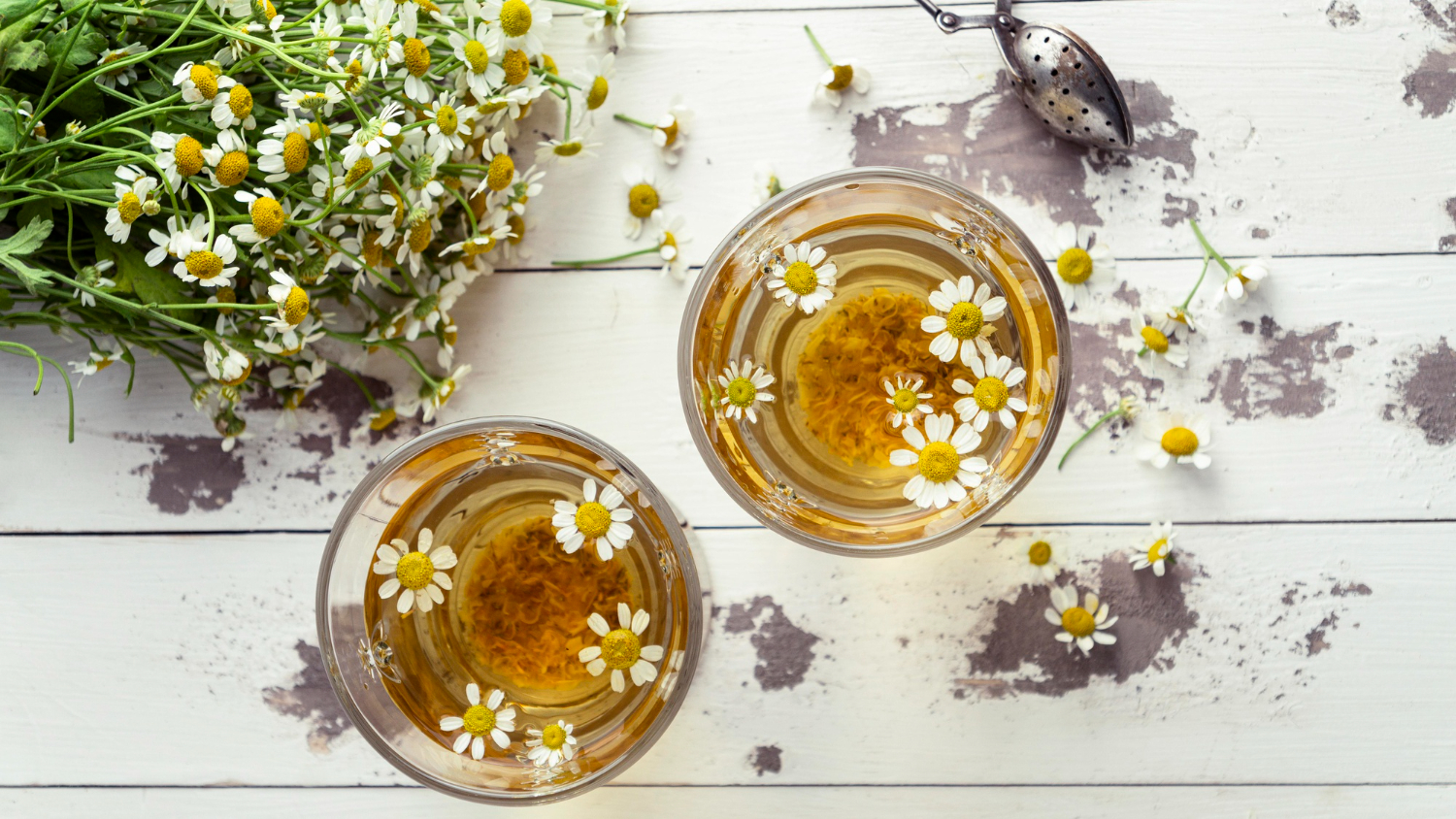There are different kinds of tea in the market, and while the marketing for each of these brands can get confusing, you should be aware of the differences. If you consume different kinds of tea, from regular tea to herbal teas with purported effects, expect different bodily reactions for each of these tea types.
Chamomile tea is consumed worldwide because of its calming and therapeutic properties. There are dozens of brands of chamomile tea in Canada and the United States alone, and people consider tea an excellent alternative to coffee. However, chamomile tea and green tea are made from different plans.
Chamomile tea is made by drying the flowers of the Matricaria chamomilla plant, while green tea is manufactured from Camellia sinensis. While both are technically tea (a beverage made from steeping leaves into hot water), they’re not the same, and their health benefits aren’t identical either.
Tea provides numerous health benefits, including reduced risk of heart disease, bone protection, weight loss, and high antioxidant levels. But can you end up drinking too much chamomile tea?
On the other hand, tea leaves may contain more caffeine than coffee beans, according to some research. Caffeine isn’t utterly harmful in tiny doses, but it can still make some people anxious and sleepless.
Caffeine is not present in herbal teas such as chamomile, ginger, or peppermint. This is because, unlike other teas, these are not brewed from the camellia Sinensis plant. Instead, they’re created from caffeine-free dried flowers, leaves, seeds, or roots. Herbal tea is an excellent alternative if you’re seeking for tea to sip late at night.
Can You Become Dependent on Chamomile Tea?
Drinking tea can become habitual, but this doesn’t mean that it can become a full-blown addiction, the way things go with hard drugs and hallucinogenic. Habit-forming things can be remedied if they begin to cause problems, while substance abuse tends to linger and directly affects the quality of life of the person.
For example, one study that focused on the prevalence of drinking tea among Asians showed surprising factors that affect the formation of the habit, including a higher BMI or body mass index. Other predictors of tea-drinking among the respondents included:
- Being postgraduate students
- Regular coffee drinking
- Regular alcohol drinking
- Some psychiatric comorbidities
- Poor sleeping habits
- Regular consumption of beverages with added sugar
These are all lifestyle factors, and they revolved around too much work and not getting enough sleep. So it’s easy to create an association between tea drinking and other respondents who were not students but were just regular office workers who were given the same types of stresses while at work.
Is It OK To Drink Chamomile Tea Everyday?
You will be fine drinking chamomile tea daily if you don’t experience any reactions from the beverage. However, like any other food or beverage, there may be some issues if you take too much of the beverage. Some of the known side effects are being hypersensitive to chamomile tea components, nausea and vomiting, irritation of the eyes, contact dermatitis, and anaphylaxis. If you have a known tea allergy and similar beverages, we suggest consulting with your doctor before consuming chamomile tea or any tea in more significant quantities. The recommended number of servings for chamomile tea is three US cups per day.
If you drink just the right amount of chamomile tea per day, there are benefits:
- Chamomile tea has been demonstrated to improve overall sleep quality by containing antioxidants that may encourage tiredness.
- Due to its anti-inflammatory properties, chamomile tea may help prevent gas, nausea, stomach ulcers, and diarrhea.
- Apigenin, an antioxidant, may aid in reducing inflammation and the risk of certain forms of cancer.
- Chamomile tea’s anti-inflammatory properties may help with blood sugar regulation, especially when drunk after a meal.
- Chamomile is a good source of flavone, which may help with heart health.
What Happens If You Drink Too Much Chamomile Tea?
Regular tea and herbal teas can harm if they are taken in large quantities. Every edible substance known to man has a toxic point, even water. So, it’s best to moderate your consumption if you wish to continue consuming this beverage healthily. Below are some of the potential side effects of drinking too much tea.
- Drinking too much tea per day will dehydrate you. Caffeine is consumed in excess when you drink a lot of tea. This can limit your tubules’ ability to absorb water, leaving you thirsty. In any event, doctors don’t recommend consuming more than three glasses per day.
- Have you been feeling bloated lately? Perhaps you’ve had too much tea. Some folks complain of bloating as a result of the caffeine in the tea. In addition, excessive tea intake can lead to dehydration, leading to undesired water retention and bloating.
- Excessive tea intake may impair the body’s ability to absorb essential elements such as iron. The iron impact is determined by the type of tea consumed. There’s some evidence that black tea can boost iron absorption, but this doesn’t apply to all tea types.
- One of the worst side effects is getting hooked. Tea is addicting due to its caffeine content. This does not apply to herbal teas like chamomile or ginger tea; only typical tea leaves are affected. Regular tea drinkers who don’t have their daily cup simultaneously may feel tired, lethargic, and angry, and their energy levels may suffer. Some people may have headaches and exhaustion until they drink three to four cups of tea each day.
- While tea can help you feel more energized and awake, too much caffeine can hurt your mental health, making you feel more worried, restless, and even sleep-deprived. Herbal teas are exempt from this rule.

